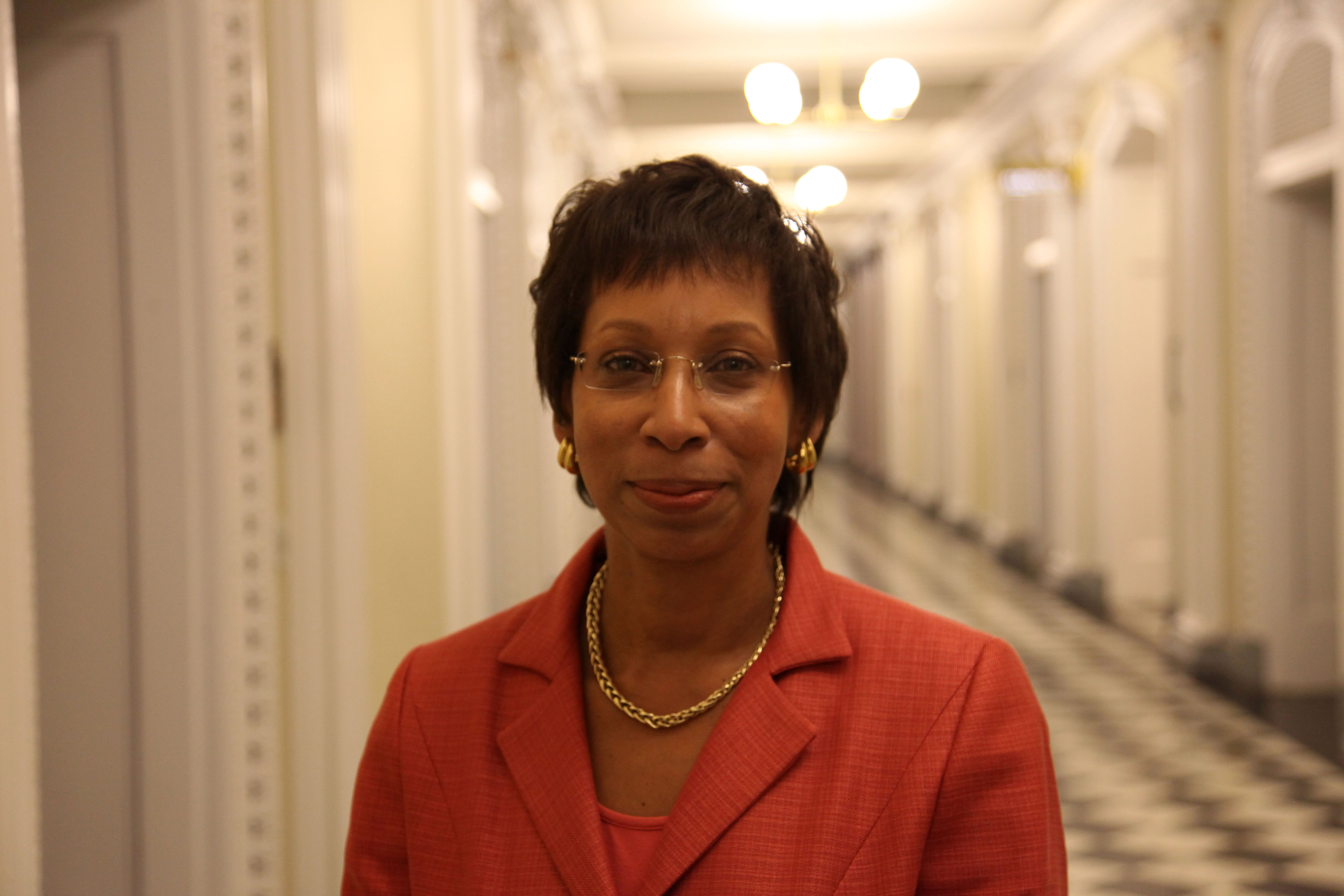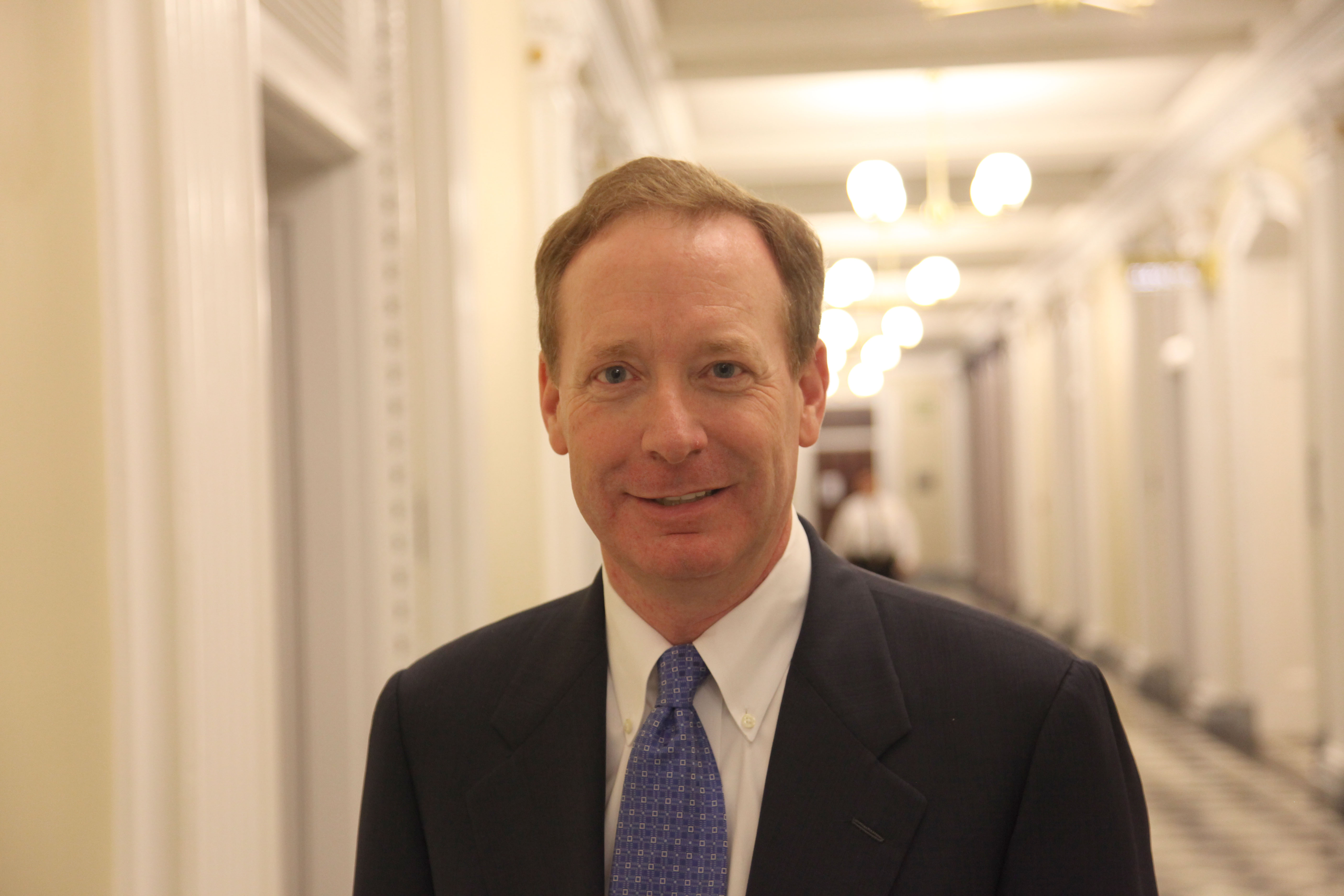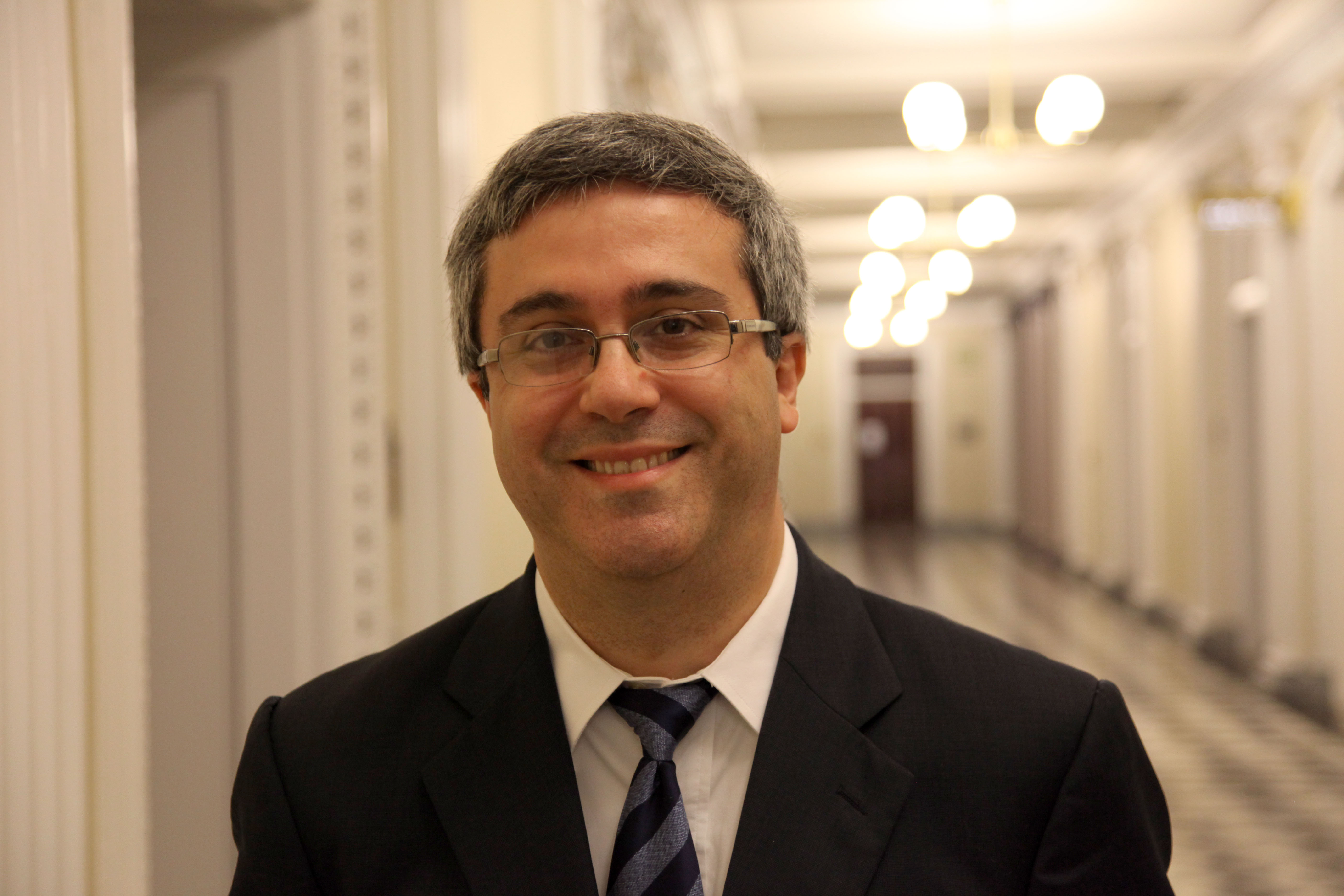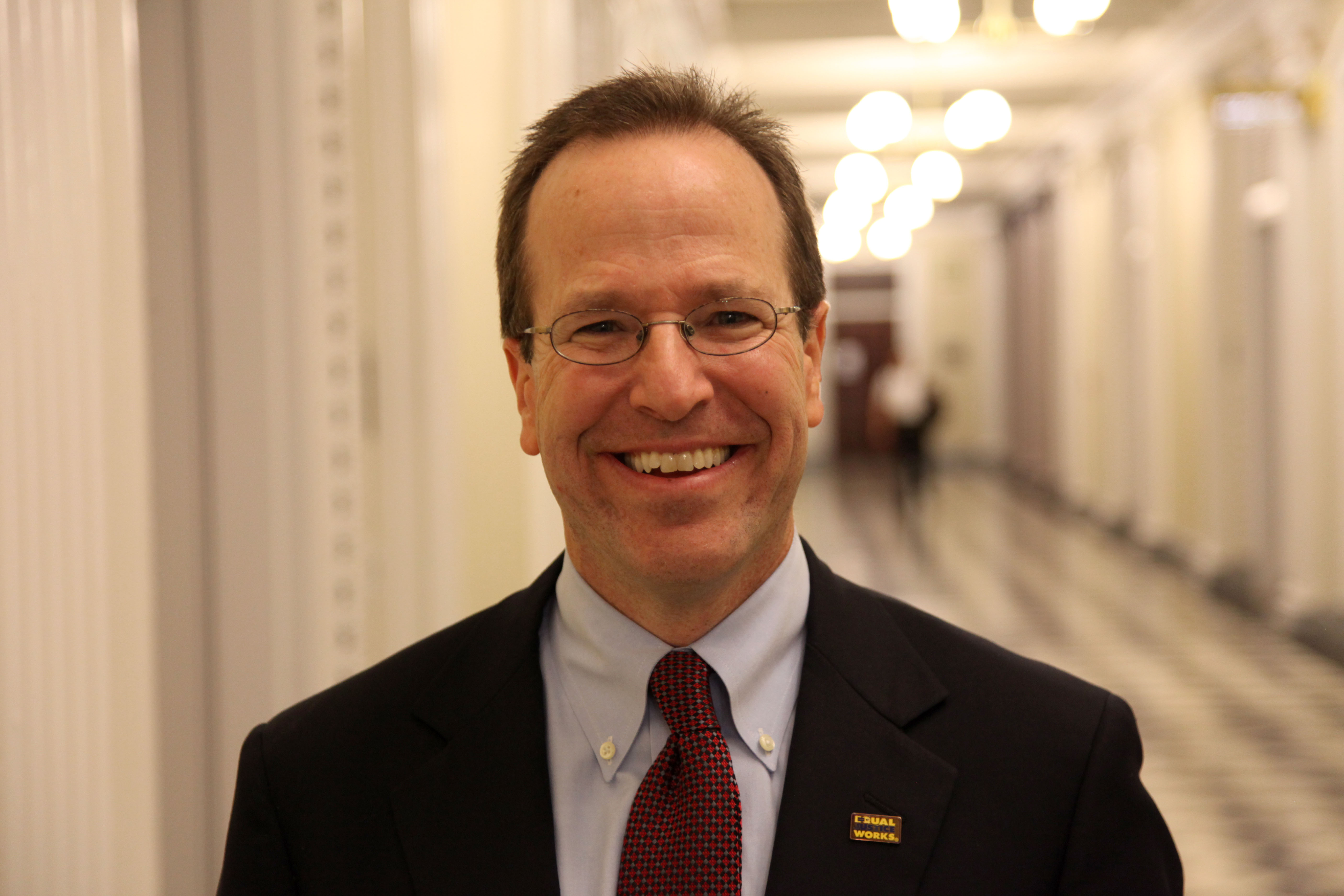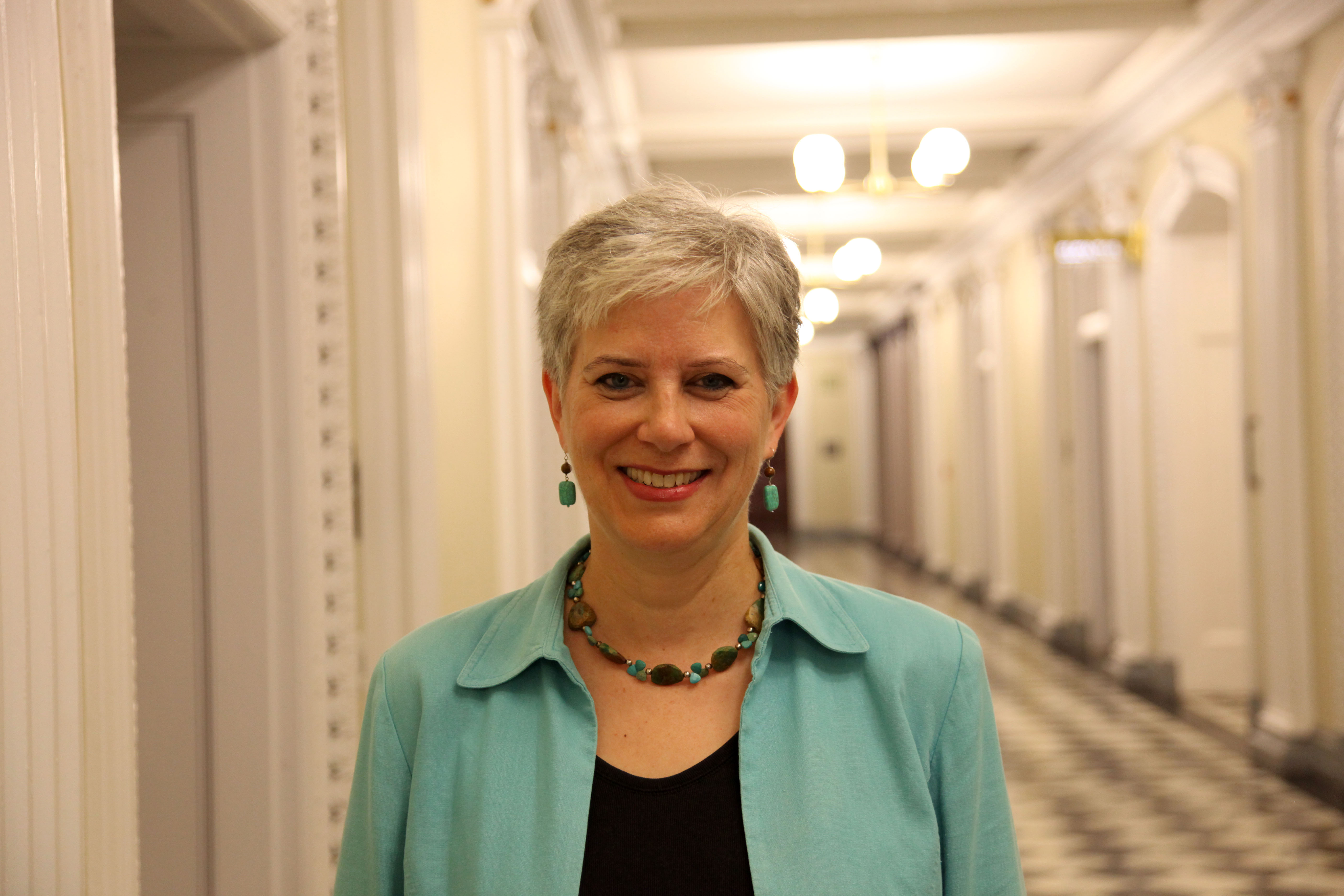Champions of Change Blog
Partnerships Needed to Ensure Justice for All
Posted by on October 24, 2011 at 11:23 AM EDTEd. Note: Champions of Change is a weekly initiative to highlight Americans who are making an impact in their communities and helping our country rise to meet the many challenges of the 21st century.
I had the privilege of participating at the White House in a nationwide, live-streamed discussion with Attorney General Eric Holder about America’s urgent need to ensure quality legal representation for those who can’t afford it.
All of us who participated agreed that America cannot claim to provide ‘justice for all’ when millions don’t have the quality representation enjoyed by those with the resources to hire a lawyer. With millions of families facing economic crisis and legal services budgets being slashed, the need to close the justice gap has never been greater.
Studies show a dramatic increase in the number of people who cannot afford quality legal representation, just at the time that they are more likely to need help with life-changing legal issues -- employment, health care, foreclosure, tenant rights, child support, domestic violence, veteran’s services, disability, criminal charges, and more. For example, as many as 99 percent of individuals facing housing eviction have no representation at all and other studies show 95 percent going without representation in child support cases.
Learn more aboutDefending Those Who Need It Most
Posted by on October 24, 2011 at 10:45 AM EDTEd. Note: Champions of Change is a weekly initiative to highlight Americans who are making an impact in their communities and helping our country rise to meet the many challenges of the 21st century.
Each year as I see litigation first-hand around the world, I come away with even greater appreciation for courts in the United States. No system is perfect, including our own. But when I walk through the doors of an American courthouse, I have more confidence in the legal rules and fair-mindedness that await me than anywhere else.
There is one catch, however.
There’s cause for confidence only if you’re represented by a lawyer.
For a company like Microsoft, that’s obviously not an issue. But for many people, the cost of legal representation lies beyond their financial reach.
That’s why it’s so important each year to celebrate and strengthen the American legal profession’s tradition of doing pro bono work. Across the country, in law firms and companies large and small, tens of thousands of lawyers volunteer their time to represent clients free of charge. Our legal system depends on it.
Learn more aboutMaking Progress Inside and Outside of the Courtroom
Posted by on October 24, 2011 at 10:15 AM EDTEd. Note: Champions of Change is a weekly initiative to highlight Americans who are making an impact in their communities and helping our country rise to meet the many challenges of the 21st century.
For two years, I have been honored to lead the terrific staff of MALDEF, one of the nation’s leading civil rights legal organizations, in pursuing a mission of promoting the rights of all Latinos living in the United States. MALDEF, founded in 1968, was consciously conceived to simulate the NAACP Legal Defense and Education Fund, whose great victory in Brown v. Board of Education so dramatically changed life and law throughout the United States. MALDEF’s unique contribution among our sister national Latino advocacy groups is to bring legal knowledge and activity, including a sizeable amount of litigation, to the shared goal of social progress.
Of course, the last 43 years have significantly affected MALDEF’s mission. With the 2010 Census confirming Latinos’ status as the nation’s largest minority group, representing one in six Americans, the demand for MALDEF’s services has surely increased. Simultaneously, over MALDEF’s lifetime, some have begun to doubt the efficacy of law as a tool of significant social change. At MALDEF, we strongly believe that litigation and legal advocacy remain critical in ensuring the progress of our nation.
Learn more aboutHelping Lawyers Help Communities
Posted by on October 24, 2011 at 9:47 AM EDTEd. Note: Champions of Change is a weekly initiative to highlight Americans who are making an impact in their communities and helping our country rise to meet the many challenges of the 21st century.
I am honored and humbled to be recognized as a White House ‘Champion of Change.’ I know most of the others recognized, and it is amazing to be in their company. These are leaders who are passionate about providing access to justice to the country's most vulnerable people.
The timing of this recognition nicely coincides with Equal Justice Works' 25th Anniversary. We were founded by law students from 14 law schools who had a dream of expanding legal services to under-represented people and increasing opportunities for law students and graduates to practice in the field of public interest.
Today, Equal Justice Works is a national player in the legal nonprofit community, continuing to create a pipeline of new lawyers committed to public service. The organization has 200 member law schools, and 170 lawyers working across the country making a difference and combating injustice every day.
Equal Justice Works is the nation’s leading creator of postgraduate legal fellowships, creating opportunities in an extremely challenging job market for attorneys wanting to pursue careers in public service. This year, our Equal Justice Works Fellowship program will have 88 attorneys in non-profit organizations around the country, bringing innovative and sustainable solutions to the injustices plaguing vulnerable populations. Thanks to funding from the Corporation for National and Community Service, we have been able to put 80 Equal Justice Works AmeriCorps Legal Fellows in the field to respond to the nation’s current crises, including placing attorneys in Joplin, Missouri to help a community rebuild after being devastated by tornadoes last spring. And this fall, we welcomed our inaugural class of 18 Public Defender Corps members, a program run in partnership with the Southern Public Defender Training Center and supported by a grant from the Department of Justice's Bureau of Justice Assistance, to place talented attorneys in overburdened public defender offices.
Learn more aboutWorking to Increase Access to Justice for All
Posted by on October 23, 2011 at 6:33 PM EDTEd. Note: Champions of Change is a weekly initiative to highlight Americans who are making an impact in their communities and helping our country rise to meet the many challenges of the 21st century.
On October 13, 2011, I was honored to be among the Champions of Change recognized for their work on access to justice in America. The occasion directed much needed attention to an increasingly urgent social problem.
It is a shameful irony that the nation with the highest concentration of lawyers has so frequently failed to make legal services available to those who need them most. For decades, bar studies have estimated that over four fifths of the legal needs of the poor and a majority of the needs of middle-income Americans remain unmet. The recent recession has widened this justice gap. High rates of unemployment, bankruptcies, foreclosures, and reductions in social services have created more demands for legal representation at the same time that many of its providers have faced cutbacks in their own budgets. As a consequence, legal aid and public interest programs are being asked to do more with less.
In this context, the need for greater research and education about access to justice assumes increasing importance. To allocate scarce funds wisely, we need better information about unmet legal problems, the gaps in service provision, and the cost-effectiveness of possible responses, including pro bono work and qualified non-lawyer assistance. To build a coalition for progress, we also need a profession and public that are more informed about what passes for justice among the have nots.
Legal academics should become more involved in these efforts. To that end, Stanford’s Center on the Legal Profession has sponsored four national forums on access to justice and pro bono service. It has also supported creation of a Consortium on Access to Justice, which is helping to sponsor teaching initiatives and interdisciplinary research projects. Among the efforts are a website clearinghouse with materials for integrating issues involving the justice gap into law school curricula and related programs. A research task force is developing collaborative projects that will bring together scholars from different institutions and disciplinary backgrounds to focus on unmet needs and strategies for addressing them. The Center has also sponsored an International Association of Legal Ethics. Under its umbrella, legal experts from around the globe explore shared concerns, including access to justice. Learning how other nations deliver effective assistance to those who cannot afford it encourages innovation here and abroad.
Equal Justice Under Law is one of society’s most proudly proclaimed and widely violated legal principles. It embellishes courthouse doors, but seldom describes what goes on inside them. Institutions such as the Center on the Legal Profession and the Access to Justice Consortium are part of the struggle necessary to narrow the gap between rhetoric and reality of in our legal system.
Deborah L. Rhode is the Ernest W. McFarland Professor of Law at Stanford Law School and Director of the Stanford Center on the Legal Profession.
Learn more about“The Arc of the Moral Universe is Long, But it Bends Toward Justice.”
Posted by on October 21, 2011 at 8:31 PM EDTEd. Note: Champions of Change is a weekly initiative to highlight Americans who are making an impact in their communities and helping our country rise to meet the many challenges of the 21st century.
I am so grateful for the opportunity to participate with the other accomplished public service lawyers in the Champions of Change roundtable on access to justice. The 16 Champions represent a wide range of ways that lawyers work for justice; I am humbled and honored to represent the dedicated public interest counselors who advise law students across the country on how to become public service lawyers and provide opportunities for students to do pro bono work.
For the past eight years as Assistant Dean for Public Service at NYU School of Law (read about NYU Law’s public service programs in its Law School blog), I have been privileged to serve students instead of clients. Law students yearn to do work that is meaningful and my role is helping students find their vocation. The lawyers I know who are happiest are those who have integrated justice into their work lives. The best part of my job is seeing the smiling law student who has helped a high school student in a suspension hearing or returned from a public defender summer internship and realizes that she has found her calling.
Learn more about
- &lsaquo previous
- …
- 150
- 151
- 152
- 153
- 154
- 155
- 156
- 157
- 158
- …
- next &rsaquo
White House Blogs
- The White House Blog
- Middle Class Task Force
- Council of Economic Advisers
- Council on Environmental Quality
- Council on Women and Girls
- Office of Intergovernmental Affairs
- Office of Management and Budget
- Office of Public Engagement
- Office of Science & Tech Policy
- Office of Urban Affairs
- Open Government
- Faith and Neighborhood Partnerships
- Social Innovation and Civic Participation
- US Trade Representative
- Office National Drug Control Policy
categories
- AIDS Policy
- Alaska
- Blueprint for an America Built to Last
- Budget
- Civil Rights
- Defense
- Disabilities
- Economy
- Education
- Energy and Environment
- Equal Pay
- Ethics
- Faith Based
- Fiscal Responsibility
- Foreign Policy
- Grab Bag
- Health Care
- Homeland Security
- Immigration
- Innovation Fellows
- Inside the White House
- Middle Class Security
- Open Government
- Poverty
- Rural
- Seniors and Social Security
- Service
- Social Innovation
- State of the Union
- Taxes
- Technology
- Urban Policy
- Veterans
- Violence Prevention
- White House Internships
- Women
- Working Families
- Additional Issues

